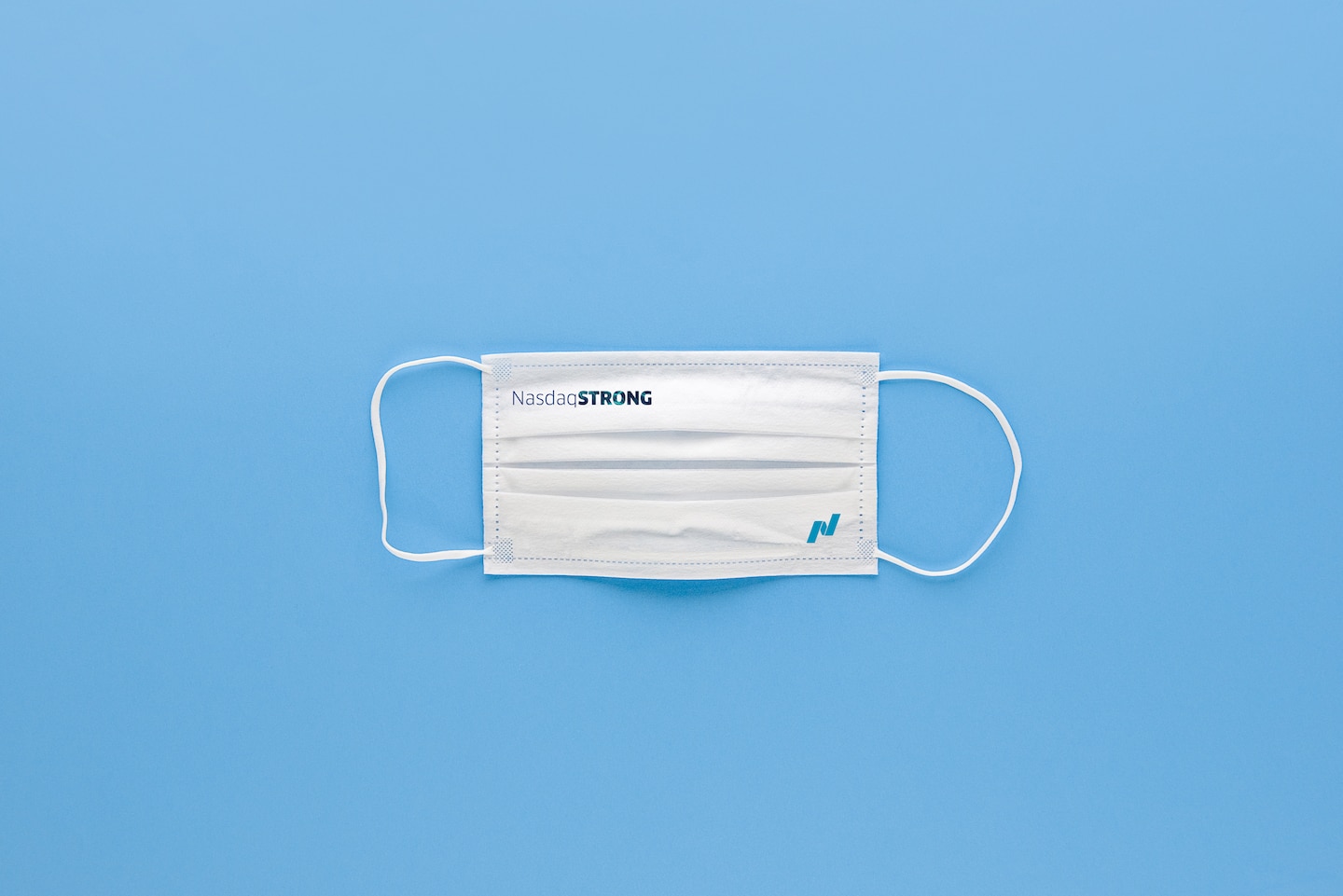The new corporate swag: Branded masks, sanitizer spray bottles and Zoom vanity light rings

As some businesses reopen and others try to stay in touch with employees working from home, companies are opting for coronavirus-related corporate swag — branded sanitizer bottles, “clean key” tools for pressing elevator buttons and, above all, masks — joining the tote bags, travel mugs and USB flash drives that have long defined company giveaways.
“It feels like 70 percent of our orders has a mask in it,” said Michael Martocci, founder and chief executive of SwagUp, despite not prominently promoting masks on his site. “Everybody wants it.”
Some companies, such as Dunkin’ and Bloomingdale’s, are selling face coverings with brands, distinctive colors or catchphrases directly to consumers, and some companies offer them to front-line employees in service jobs. A start-up called Meekara, which offers a line of tailored masks that can be adorned with a corporate logo, said it is in discussions with a major airline to produce branded masks for its premium-class passengers and ground crew.
“The mask could become the new fleece vest,” said Susan Scafidi, academic director of Fordham University’s Fashion Law Institute, referring to the popular Silicon Valley fashion staple.
However, public polling shows wide support for wearing masks: A Pew Research survey of Americans from mid-June found that more than 70 percent believe people should wear face coverings most or all of the time in public places, and a recent Fox News poll found that 80 percent hold a favorable view of mask wearers.
Yet for businesses, offering branded sanitizer or wearable swag related to a pandemic carries more sensitivities than a logo-emblazoned golf shirt or baseball cap. Scafidi warned that companies could be seen as “exploiting the pandemic by using the space on the face as additional corporate branding.”
Some employers may be wary of commercializing a health crisis by adding logos to masks. “It is frankly a weird product to sell — masks. You go to swag for fun,” while masks are for safety, said Jeremy Parker, co-founder of Swag.com, which is donating 10 masks for every 100 it sells.
Parker said only about 10 percent of their mask orders include a corporate logo, while an additional 30 percent are ordered with a phrase or saying of some kind.
A month ago, “it was all about the medical masks,” said Leo Friedman, chief executive of the promotional products site iPromo.
“Today, almost 75 percent of our orders are for branded” masks, he added, noting that most are being ordered with a smaller logo on the side of the mask, in muted or single colors, rather than being splashed across the front. “You don’t want to be a walking billboard on the face,” Friedman said.
Companies in the promotional-products industry have had to pivot quickly after sales for trade show tchotchkes collapsed and swag for employee training off-sites and new-hire welcome kits slowed.
Still, several said their business has improved as companies have bought branded sanitizer and masks, as well as items such as branded cozy socks, clip-on Zoom vanity light rings, webcam privacy covers, and branded books and puzzles to keep kids busy for work-from-home staffers.
Some companies have also placed orders for returning workers, including personalized and branded water bottles, mugs or tech gadgets so they don’t get mixed up in the office. “Now, not sharing is caring,” said Kim Laffer-Nick, director of marketing communications at ePromos Promotional Products.
Some employees have expressed appreciation for the swag. Dallas-based Christopher Kratovil, a partner at Dykema law firm, posted a photo of himself in a blue branded Dykema mask on Twitter, saying, “In 20 years of practicing law, this is the single best piece of law firm swag that I have received.” (Dykema and Kratovil did not respond to an email inquiry.)
Some human resources experts said providing branded face coverings could encourage returning employees to wear masks. “There are so many employees right now who believe it’s a political statement to wear a mask that putting a logo on it might make a difference,” said Brian Kropp, a vice president at Gartner. “I think by providing it, it just creates consistency.”
Company-issued masks could also make it easier to maintain professional dress codes.
“A lot of employers would like people to wear something uniform and more professional, rather than coming in wearing elephants and rainbows on their face,” said Michael Camuñez, Meekara’s co-founder. “You may not want to walk out and see your secretary wearing a New York Mets face covering any more than you’d want her to be wearing a baseball cap” in the office.
Read more:






